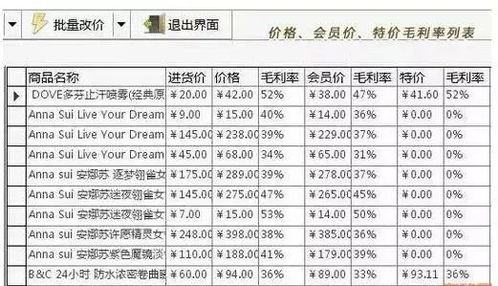心理定价策略主要有什么定价等
```html
Psychological Pricing Strategies
Psychological pricing is a pricing strategy that focuses on the psychological aspects of consumer behavior rather than solely on the actual cost of goods or services. By understanding how consumers perceive prices, businesses can implement strategies to influence purchasing decisions. Here are some key psychological pricing strategies:
Charm pricing involves setting prices slightly below a round number, such as $9.99 instead of $10.00. This strategy capitalizes on the leftdigit effect, where consumers focus on the first digit of the price. Prices that end in 9, 99, or 95 are perceived as being significantly lower than they actually are, leading to increased sales.
Prestige pricing involves setting prices artificially high to convey a sense of exclusivity and luxury. This strategy is often used for luxury goods and premium brands. By associating higher prices with higher quality or status, businesses can attract affluent consumers who are willing to pay more for perceived value.
Bundle pricing involves offering multiple products or services for a lower overall price than if each item were purchased separately. This strategy creates a perception of value and encourages consumers to buy more items to take advantage of the discount. Bundling also helps businesses increase average order value and move excess inventory.

Oddeven pricing involves setting prices as odd or even numbers based on the product and target market. Odd prices, such as $19.99, are perceived as being discounted or budgetfriendly, while even prices, such as $20.00, are perceived as being of higher quality or luxury. Businesses can choose the pricing strategy that best aligns with their brand image and target audience.
Price anchoring involves presenting a higherpriced option alongside the target product to make it seem like a better value. By anchoring the consumer's perception of price, businesses can influence them to choose the target product, even if it is still relatively expensive. This strategy is commonly used in conjunction with tiered pricing or upselling.
Decoy pricing involves introducing a third option that is intentionally unattractive to steer consumers toward the target product. The decoy product is priced similarly to the target product but offers less value or features. By comparison, the target product appears more appealing, leading consumers to choose it over the decoy.
Psychological pricing strategies leverage consumer psychology to influence purchasing decisions and drive sales. By understanding how consumers perceive prices and value, businesses can implement effective pricing strategies to maximize profitability and maintain a competitive edge in the market.
